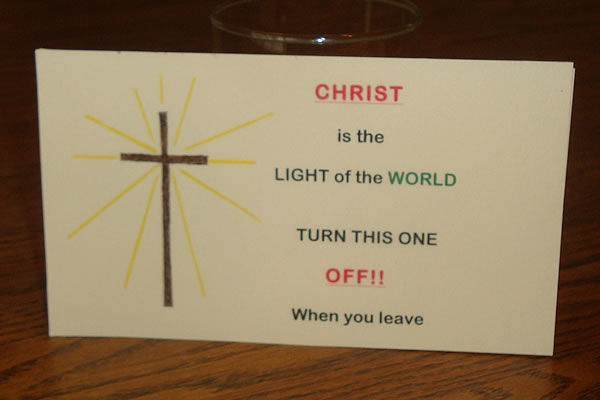In his formal installation Mass at the Vatican on March 19 of this year, Pope Francis focused on an issue that so many of the Catholic faithful around the world hoped he would: caring for and protecting Creation. The pope called on “all those who have positions of responsibility in economic, political and social life” to “be protectors of creation, protectors of God’s plan inscribed in nature, protectors of one another and of the environment.” His words rightly imply that “Creation Stewardship” recognizes a fundamental connection between care for the earth, care for our neighbors and economic, social and health concerns. Pope Francis’ words continued the theme of Creation Stewardship, which has long been a subject of writings and actions in the Catholic Church: —Orders of religious women and men have integrated sustainability measures in their lives for decades. —In 2001, the U.S. Conference of Catholic Bishops issued a statement entitled “Global Climate Change: A Plea for Dialogue, Prudence and the Common Good.” —Pope John Paul II spoke of the issue a number of times, and Pope Benedict XVI highlighted the issue, most eloquently in his 2010 World Day of Peace message, If You Want to Cultivate Peace, Protect Creation. —In 2009, the USCCB launched an initiative, Catholic Coalition on Climate Change, focused on a Catholic response to lessening the impacts of climate change and pollution, especially on how they affect the most vulnerable in society. Catholic dioceses around the nation, and California in particular, have been involved in Creation Stewardship, including air quality and legislative issues in the Diocese of Stockton, and an energy efficiency and solar energy initiative in the Diocese of San Jose. Efforts in the Los Angeles Archdiocese include a variety of actions, designed to lower carbon emissions and protect public health and all of God’s creatures. So important has this issue become that a Creation Sustainability Committee was launched throughout the Archdiocese in October, 2010. The Committee includes experts in the fields of education, renewable energy and energy-efficiency, such as Dave Troesh, author of “77 Ways to Save Money and Energy at Your Church or School.” Resurrection Church and School in Boyle Heights are stars when it comes to environmental justice efforts. Surrounded by major freeways, trains and industries from Vernon, the health effects of poor air quality are all too real. Fortunately, true to the model of St. Francis, Msgr. John Moretta, pastor, and Angelica Figueroa, principal, have initiated community and student action to fight the causes of local pollution, while building a community coalition of faith, social, health and regulatory organizations. Resurrection’s advocacy efforts came to prominence several years ago when it formed a community coalition against the proposed building of a second natural gas power plant in the neighboring City of Vernon. The risks associated with this plant — an estimated 11 deaths per year; more miscarriages, increased cases of asthma and other illnesses; and multiple lost workdays —were unacceptable to the Resurrection community. As a result of combined efforts, the power plant proposal was defeated. Their most recent advocacy action has centered around Exide Technologies, a large battery recycler, which has been found to have emissions of both arsenic and lead above allowable limits, resulting in an increased cancer risk for the local population of 110,000 people. Again, Resurrection led the way in coalition building with local legislators, organizations and regulatory agencies in speaking out against this. Currently, legislators and regulators have recommended the closure of Exide. In terms of education, students are taught about stewardship and climate change issues in their curriculum and how they can be part of the solution. In 2011, both the students and Msgr. Moretta were featured in the South Coast Air Quality Management District’s signature video, “The Right to Breathe.” In addition, both the church and school have undergone lighting retrofits and are now working on other energy-efficiency measures. “We’re very proud of Resurrection’s activism based on the realization that we are all responsible caretakers of God’s Creation,” stated Msgr. Moretta. “We look forward to continuing that activism by educating our young people.” Added Figueroa: "We, as faith and community leaders, must take an active role in encouraging people to be involved in social justice issues. Having children be involved in environmental issues in particular is critical because they are the future leaders of society." Next: How parishes and other Catholic institutions have embraced energy and environmental conservation concepts in building or renovating their facilities. Allis Druffel is Southern California outreach director for California Interfaith Power & Light. To get information on energy and cost saving measures, contact her at [email protected].

